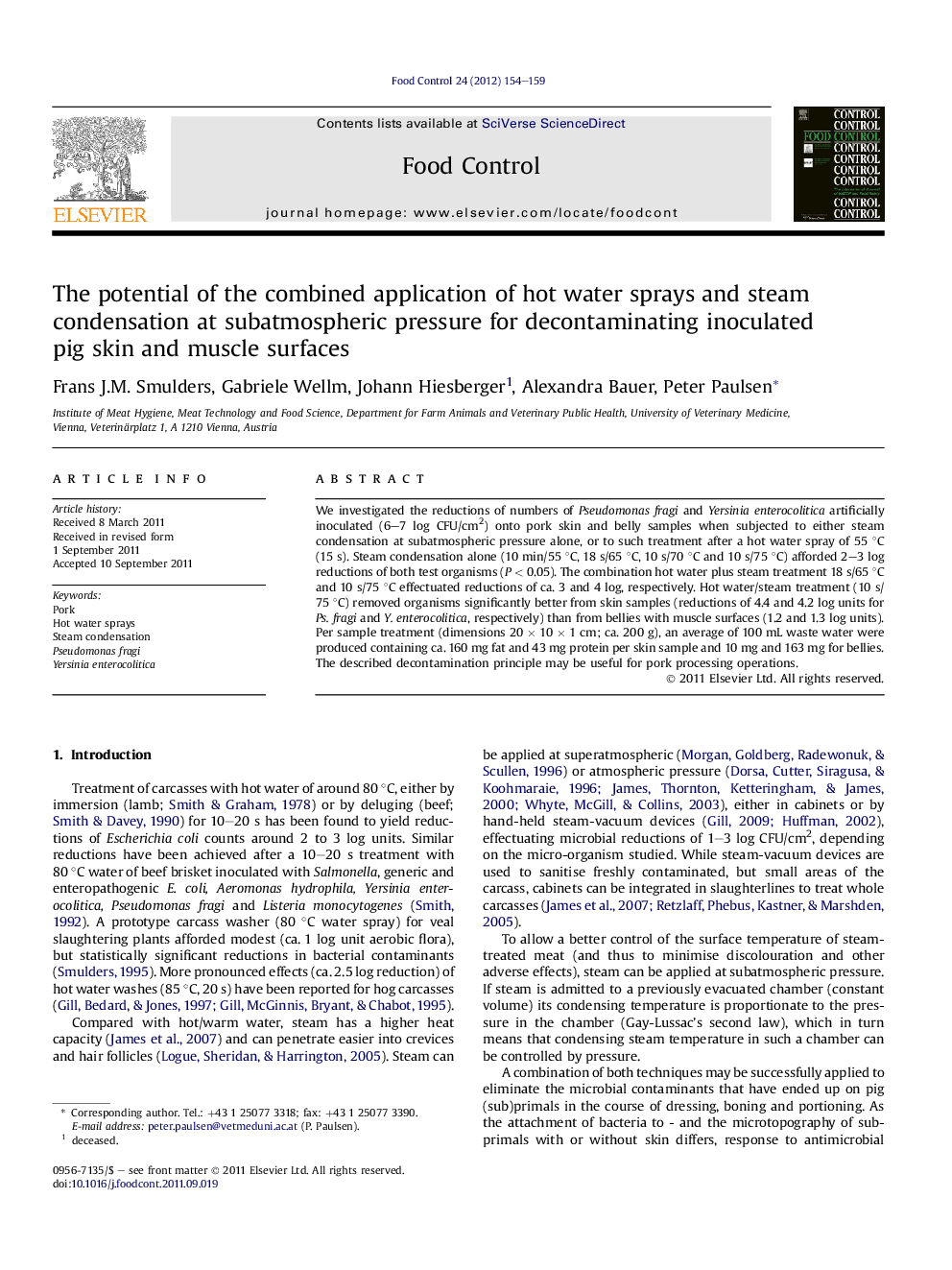| Article ID | Journal | Published Year | Pages | File Type |
|---|---|---|---|---|
| 6394466 | Food Control | 2012 | 6 Pages |
We investigated the reductions of numbers of Pseudomonas fragi and Yersinia enterocolitica artificially inoculated (6-7 log CFU/cm2) onto pork skin and belly samples when subjected to either steam condensation at subatmospheric pressure alone, or to such treatment after a hot water spray of 55 °C (15 s). Steam condensation alone (10 min/55 °C, 18 s/65 °C, 10 s/70 °C and 10 s/75 °C) afforded 2-3 log reductions of both test organisms (P < 0.05). The combination hot water plus steam treatment 18 s/65 °C and 10 s/75 °C effectuated reductions of ca. 3 and 4 log, respectively. Hot water/steam treatment (10 s/75 °C) removed organisms significantly better from skin samples (reductions of 4.4 and 4.2 log units for Ps. fragi and Y. enterocolitica, respectively) than from bellies with muscle surfaces (1.2 and 1.3 log units). Per sample treatment (dimensions 20 Ã 10 Ã 1 cm; ca. 200 g), an average of 100 mL waste water were produced containing ca. 160 mg fat and 43 mg protein per skin sample and 10 mg and 163 mg for bellies. The described decontamination principle may be useful for pork processing operations.
⺠Reduction of Yersinia enterocolitica and Pseudomonas fragi on pork skin and muscle studÃed. ⺠Condensing steam at 65-75 °C for 18-10 s effectuated 2-3 log reductions on skin. ⺠Combination with preceding 55 °C water spray (15 s) effectuated 3.1-4.4 log reductions on skin. ⺠Reduction on muscle tissue significantly lower (1.2 log). ⺠Waste water of contains significant amounts of fat.
